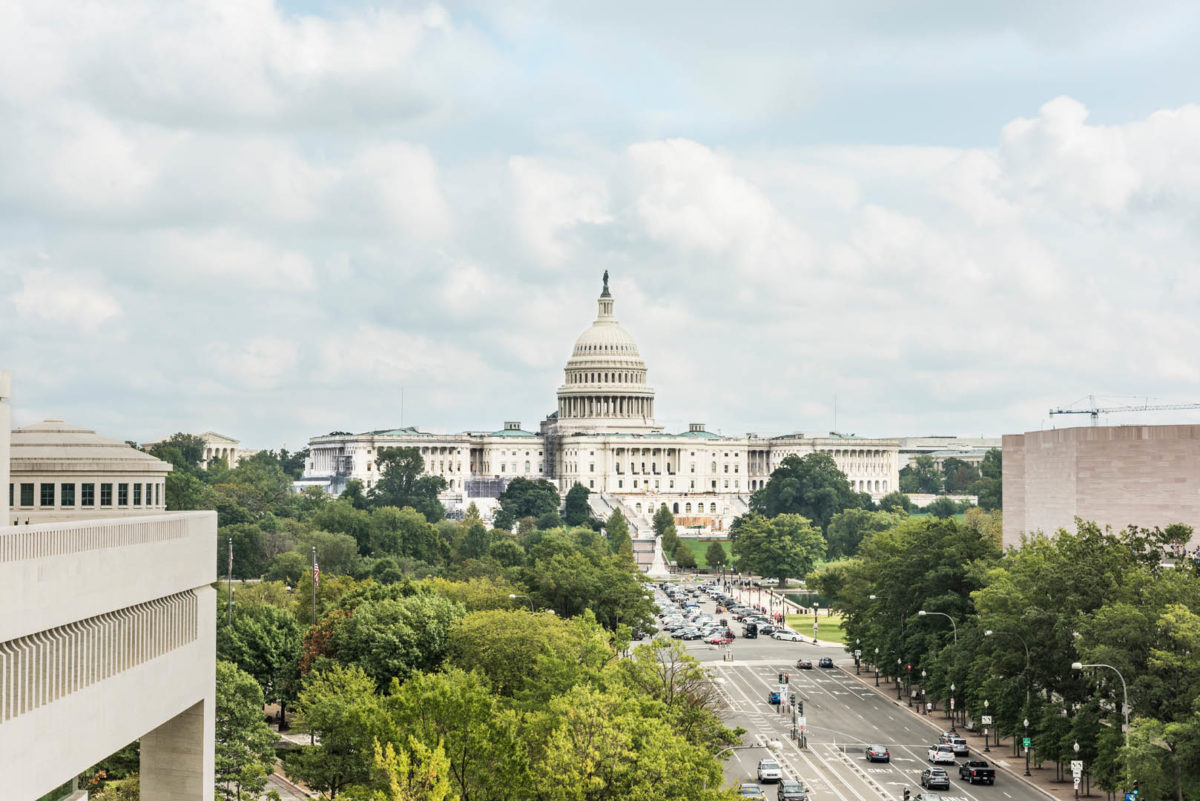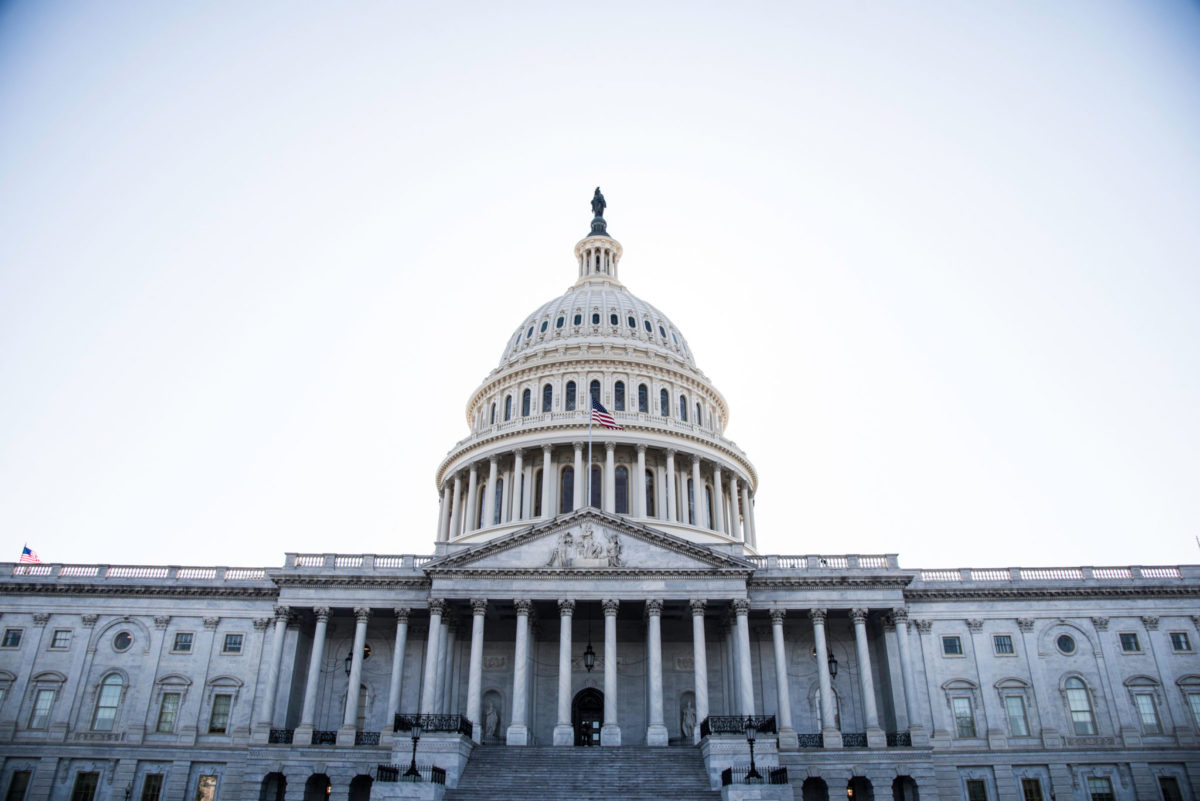The History of Appropriations

by Michelle Rutter, Government Relations Manager
Congress doesn’t spend much of their time on passing legislation, but one exception is how much time they spend on the nation’s annual spending bills. These bills, also commonly known as appropriations bills, are legislation in Congress that “appropriates,” or sets aside, federal funds to be divided between specific federal government departments, agencies, and programs.
Let’s take a look at the history of the appropriations process, and later, we’ll talk about how it all relates to cannabis.
Appropriations bills are one part of the larger federal budget and spending process. Congress’ ability to appropriate funds has its origin in the Constitution — Article I, section 9, clause 7 states that “No money shall be drawn from the Treasury, but in Consequence of Appropriations made by Law…” The President still has the power to veto appropriations bills, however, they cannot choose which provisions to keep and which to delete — the Executive must either approve or disapprove of the entire bill.
Regular appropriations bills are passed annually, with the funding they provide covering one fiscal year. The fiscal year runs from October 1 to September 30 of the following year. For example, Fiscal Year 2019 (FY2019) will run from October 1, 2018, until September 30, 2019. Appropriations bills are created, amended, and passed initially by the House and Senate Committees on Appropriations, both of which have twelve matching subcommittees, each tasked with working on one of the twelve annual regular appropriations bills. Each of those twelve subcommittees deals with a different subject.
As Congress has become increasingly partisan, another type of appropriations bill, the continuing resolution (CR), has gotten much more popular. If a new fiscal year begins and Congress has not passed some — or all — of the regular appropriations bills, Congress can extend their funding authority from the previous year, with possible minor modifications, using a continuing resolution. Think of a CR as a “copy and paste” of the appropriations bill, with possibly a few other provisions added. If all twelve regular appropriations bills have been passed, a continuing resolution is unnecessary.
There are various points throughout the appropriations process where members of Congress may introduce amendments to the bill being considered. They may be introduced in committee by a member of either chamber’s Appropriations Committee, or they may be submitted to the powerful Rules Committee. In recent years, the Rules Committee has been overcome by partisanship and has essentially blocked the minority’s amendments. This has made it difficult for any topic that can even be considered as somewhat “controversial” to be addressed.
In next week’s installment, we’ll talk about how the appropriations process relates to cannabis policy and how NCIA has moved the dial in recent years. Stay tuned!
News Alert! Omnibus Update: Medical cannabis businesses protected through September 30

by Michelle Rutter, NCIA Government Relations Manager
After years of continuing resolutions and many rounds of negotiations, Congress reached a budget deal and passed a new omnibus spending package that funds the government through the remainder of FY2018, which ends on September 30.
This new spending bill does include the Leahy amendment (formerly the Rohrabacher-Farr amendment), which prohibits the Department of Justice from using tax dollars to enforce federal law against state-legal medical cannabis patients and businesses. Following the rescission of the Cole Memo in January by Attorney General Jeff Sessions, NCIA and our allies in Washington, DC pushed even harder to ensure that this language, which has been included in federal appropriations bills since 2014, was included in the spending package for the remainder of FY2018. In addition to language protecting state-legal medical cannabis programs, the omnibus bill unfortunately also included a provision that continues to block Washington, DC from taxing and regulating adult-use cannabis, despite the fact that voters approved the legalization measure nearly four years ago.
In normal budget cycles, Congress passes a fiscal year budget that goes from October 1 until September 30. But in these extraordinarily partisan times, Congress has been unable to agree on an annual budget and has patched together short-term funding bills called Continuing Resolutions (CR’s), which maintains current funding levels. Since just last September, there have been five such short-term CR’s. All of these CR’s have included the Rohrabacher-Farr (now Rohrabacher-Blumenauer in the House and the Leahy amendment in the Senate) amendment which protects medical cannabis businesses, programs, and patients in states where it’s legal. The last of these continuing resolutions is set to expire on Friday, March 23rd. The new omnibus spending bill will continue to fund the government through the remainder of FY2018, which ends on September 30, 2018.
The congressional appropriations process for FY2019 is already underway. While we have achieved a victory in extending medical cannabis protections, there’s much more work to be done. NCIA is lobbying not only to continue the medical cannabis protections, but to also expand protections to protect all legal cannabis businesses from federal interference, including adult-use businesses operating in the eight states with such programs. We are also working to pass a cannabis banking amendment, as well as an amendment that would protect veterans who choose to participate in state-legal cannabis programs. In addition to all of these appropriations amendments, NCIA is still working to pass legislation that would solve the cannabis banking problem, amend IRC Section 280E, and, ultimately, end cannabis prohibition.
You can get involved and make your mark on Congress by registering for NCIA’s 8th Annual Cannabis Industry Lobby Days in May.

Another Budget Deal: What Does It Mean For You?
by Michael Correia, NCIA Director of Government Relations
Following a brief shutdown in the wee hours of Friday morning, Congress came to yet another short-term budget deal to continue funding the federal government until March 23, 2018.
In normal budget cycles, Congress passes a fiscal year budget that goes from October 1 until September 30. But in these extraordinarily partisan times, Congress has been unable to agree on an annual budget and has patched together short-term funding bills called Continuing Resolutions (CR’s), which maintains current funding levels. Since just last September, there have been five such short-term CR’s. These short-term funding bills have not only hampered basic government functions, but have also affected military readiness and has even led to a federal government shutdown, which has lowered the public’s already dismal opinion of Congress.
After much negotiation between House and Senate leaders, it appears that the parameters of a two-year budget solution have been agreed to. The new budget deal is both bipartisan and bicameral (which has become a rarity in Washington, D.C.) and addresses many controversial issues that have hindered previous negotiations. This new budget deal increases funding levels for the military, provides billions in disaster relief, addresses infrastructure, education, child care, and attempts to combat the opioid epidemic.
But, in typical Congressional fashion, the details still have yet to be finalized. The Congressional Leaders have agreed to work with the leaders of the appropriations committees to ensure that all budget priorities are met.
So, what does this mean for your business and what does this mean for medical cannabis protections?
Since 2014, the federal budget has included language that protects medical cannabis operators from Department of Justice prosecution. These protections will be maintained in this short-term funding bill, so medical cannabis programs and businesses are protected until at least March 23, 2018. However, it is imperative that Congress maintains these protections (and even expand protections for adult-use) in the longer budget that is being negotiated between now and March 23. NCIA will continue our Congressional lobbying efforts and work with our partners and other advocates to continue these protections.
As with anything, if you need further clarification or have questions, please contact our Government Relations office.
Our team in Washington, D.C., works everyday to make the industry’s voice heard, but nothing matches the power of a personal story personally told. Remember to join us for NCIA’s 8th Annual Cannabis Industry Lobby Days this year on May 21-23 in Washington, D.C.



